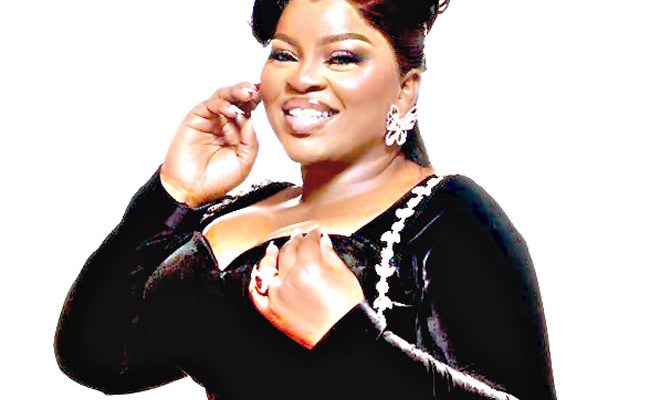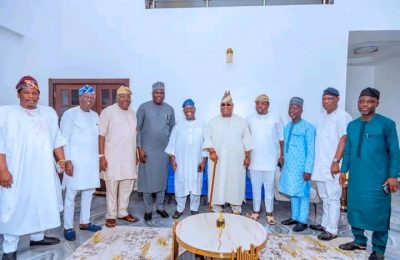

Already a familiar face in Nollywood, Bimbo Thomas solidified her fame with a standout role in Funke Akindele’s Omo Ghetto. Known for her dynamic performances and bold screen presence, Bimbo has continued to evolve and captivate audiences, maintaining her relevance in the industry over the years. In this interview by Segun Adebayo, she opens up about the strategies that keep her grounded and relevant, her thoughtful approach to selecting roles, and the passion that drives her enduring success in entertainment.
What would you say is your greatest achievement as an actor?

I will say ‘open doors’ because so many times when I needed something, for instance, at the embassy, I don’t go through stress. You know, the normal me would follow protocols and queue, but the next thing I would hear is ‘Bimbo, no, don’t queue. Come let me help you’. And you know how strict they can be over there. I don’t pay for premium upgrade; I will just stand on the queue and they will fish me out. It’s been like that. I will get somewhere and they will single me out for good. May it not be the other way round for me. I give God all the glory.
Let me take you back a bit. How would you describe your growing up in Obadina area of Lagos, a place regarded as a ghetto?
What a great street! Obadina is a place where you can either be made or marred. But I chose my path, thanks to God and my wonderful parents. I can’t forget the memories of where I was brought to life in a lifetime. The street is full of all kinds of inexplicable beings and happenings. Anyway, I can say it was the survival of the fittest then. I am glad I learned the hard way and it made me who I am today to the glory of God.
A lot of people still make reference to your amazing performance in the 2010 movie ‘Omo Ghetto.’ To what extent did you go to fit into the role?
Candidly, I went all out, just to get the reality of the role. I visited unimaginable places, saw people who had done that before, and I made several moves to extract words and actions from their lifestyles. Besides, I was ready for loads of films, in addition to the information I gathered. When it came to the interpretation of the adapted role, it was like a thorn in the flesh. But here I am today, thanking God for the opportunity and inspiration of the act.
What are your thoughts about the big projects by your colleagues in Nollywood lately?
It’s not sudden. What I believe is that whatever hard work you are doing right now will definitely pay off someday—it might take a while, but it will. I know that we have some very quality filmmakers among us in the Yoruba-speaking part of Nollywood. They have, at some point, underestimated themselves, not knowing the power that they have, but I am thankful that it is happening, and I won’t fall short of that opportunity because I am coming out strong very soon.”
Should your fans be expecting your big-screen movie anytime soon?
I’m coming soon. In the last five months, I’ve been shooting YouTube movies. And you know, for someone like me who has taken a backseat because I went into motherhood, after motherhood, I went into businesses. But now, I’m back because this is my first love anyway, this is what I love to do, so why won’t I do it.”
Having been in the industry for a long time, what are you doing to keep yourself relevant?
There’s nothing special that I am doing. I don’t have a manual to my lifestyle, but over time, I have been able to identify that it’s good to be real, no matter how it is. Do you know that it’s more stressful to be fake than to be real? You can’t keep up. And someone like me, a freestyler, I just walked in here and I have been playing. I don’t package in any way, so maybe originality is working for me. I’m not trying to talk anyone down. No! You know what they call street credibility. I grew up in a place where I understood the true meaning of life. I don’t try to overdo anything, either in my dressing or in my manner of approach.”
You are multitalented. You’re also an MC and a businesswoman. How do you strike a balance?
Like I said earlier, if it’s in you, it’s in you. And don’t forget that I studied theater arts, so it is what I have embodied. I can MC, you have seen that. I am a business person—you have seen that aspect too, and you have also seen my acting prowess. But I am getting to be a filmmaker. I remember someone asked me why I haven’t produced all this while, but I have seen myself as an actor for a while and that’s what I wanted to see myself as. But now, I’m going into the business aspect of it, which is filmmaking, and I’m coming head up. I’m doing my studies, my research, and I am talking to people that have been there and are still there so that I won’t come and test waters and fail. I want to learn all the nitty gritty and do what is needed.
What do you think is yet to be done for indigenous movies to reach a global stage?
Before now, I would have said budget, but I see that we are not holding back when it comes to budget. So, I think it’s in the quality of the films that we make. Yes, we have the equipment now, but we also lack the facilities to make good movies yet, so we still stage manage. We need to look in that angle and get these things right. The fact that we have the budget, we have quality actors, we have quality stories, and we are getting there. We can get more.”
What are the things you look out for before accepting a script?
Quality script and a challenging role. I remember that way back, in the earlier days of my limelight, people started stereotyping me, and I said to myself, I am way beyond just a ghetto girl, so I started rejecting roles. To God be the glory, I can write myself into all kinds of roles now and I’m good.”
Some fans think that Yoruba actors are razz. What’s your take on that?
First and foremost, don’t say Yoruba actors. I studied theater arts at the University of Lagos, so it’s a matter of personality, what you want to showcase. I started from the English-speaking industry, and I came to the Yoruba industry not because I was sent away or because I couldn’t fit in, but because I just felt that this is where I have my people. My experience at the time turned me off a little bit.”
What really happened? What was the experience like?
When we go for auditions, you see that the likes of Nneka or Onyekachi are who they want to give roles to. When they see a Bimbo Thomas, Tola Balogun, even if you nail it, they will say, ‘Okay, we’ll get back to you,’ and I didn’t like it. I even had a director, Emma Oguguwa, who was taking me around at the time. I just said, let me start with my people, and when it is time, they will come. And isn’t it happening now?
How are you coping with the current economic situation in Nigeria?
I have this to say: no matter how hard it is in this country, it will be easy for me. As far as you can afford it, just thank God. I am not shading those who don’t have, but when God has blessed you to be able to figure something out for yourself, just be grateful. There’s no rich person anywhere; we are all managing.”
READ ALSO: 2027 general elections contest between APC, Nigerians — Gov Makinde








